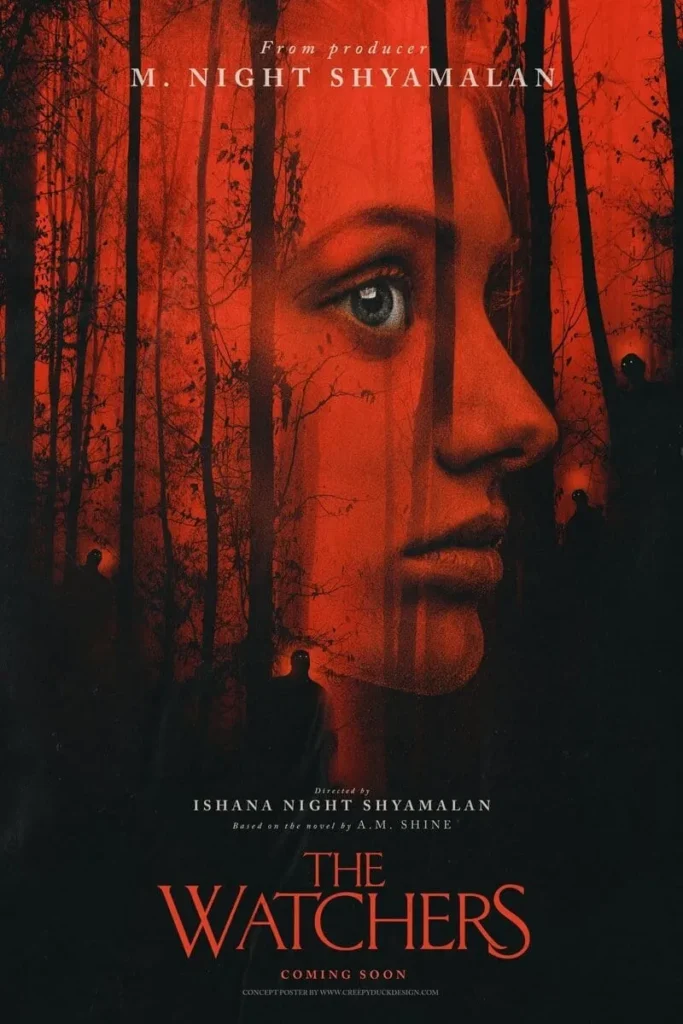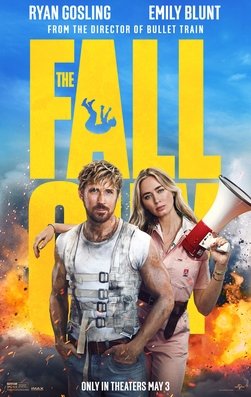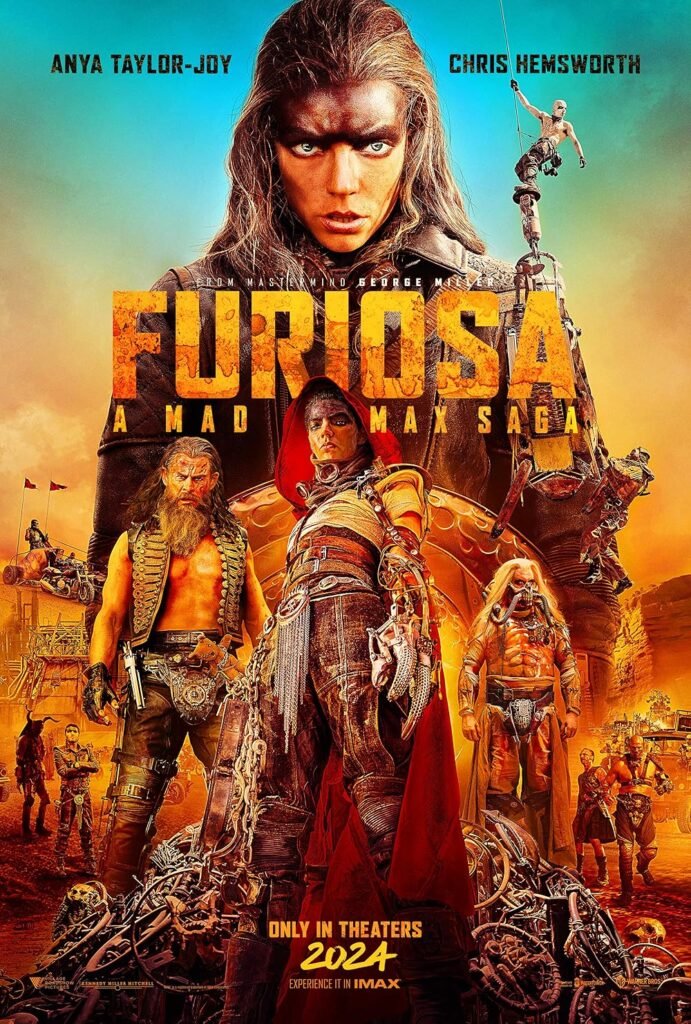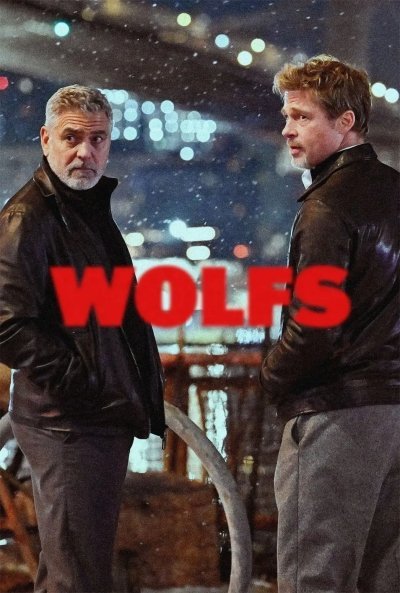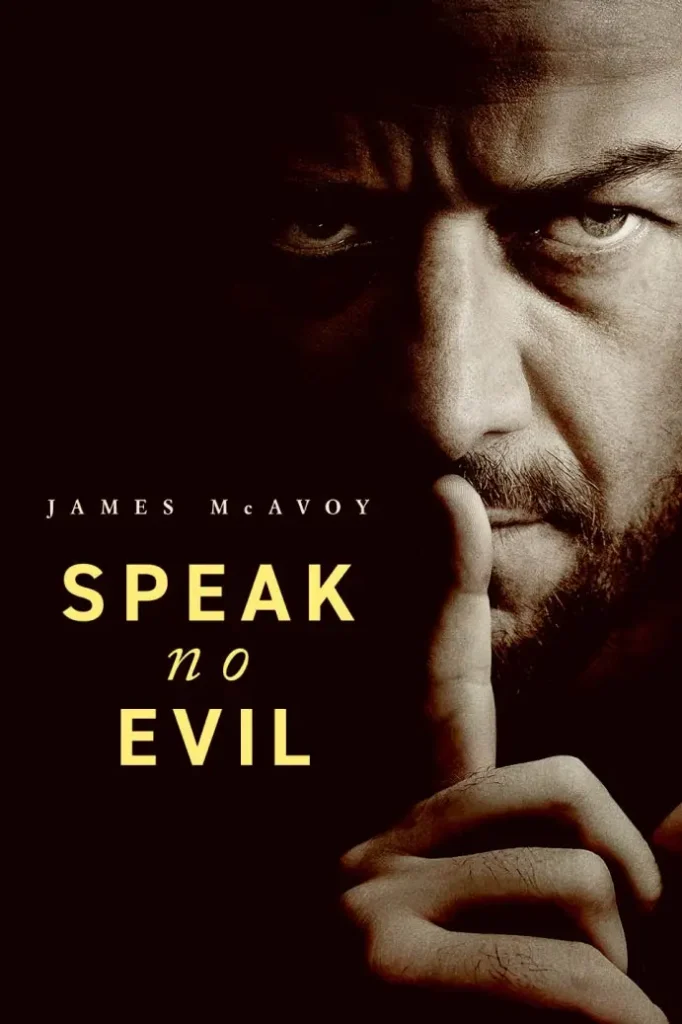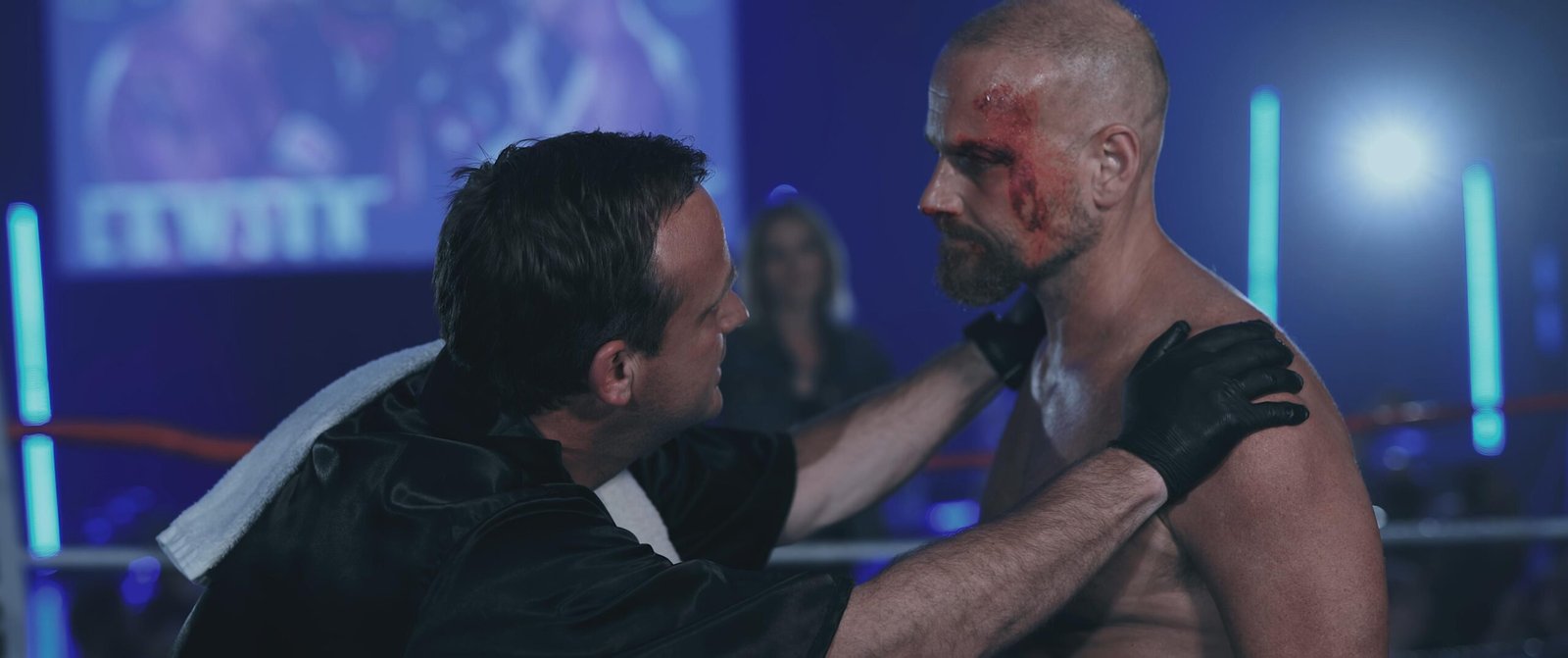

WATCH NOW


Having not seen it, I might not even consider it an Ohio indie because it was shot in the southern parts of Indiana, however, there was a request made to me to do a small review for the independent film, A Father’s Fight, a low budget, faith-based, which is now having a small theatrical presence in Virginia and in the rest of Hoosier state. Some years ago, this was a passion project for Tyler Sansom (Restore). It was a single local church that financed the entire $30,000 budget, and a majority of the cast and crew worked on a volunteer basis, as production took place during the coronavirus pandemic. In several ways, the film is already seen as a story of success, a good number of people put in effort to make sure an artistic vision made it to the screen, and this was all done during some of the most difficult and restrictive periods of modern history. A Father’s Fight is one of those exceptional Christian indie films that tries to be more inclusive than just preaching to the existing followers. It also aims to provide humor alongside the moral lesson.
Bo Lawson, played by Travis Hancock, is tippling away. He is also a terrible husband he shouts at his wife, Kacie bodied by Sarah Cleveland, and does not care about her putting forth a leave me and the kids ultimatum. When she finally does it, he has no clue how to stitch together the pieces of his life. The next thing is that Sal Burton has appeared on the scene. That’s John French, his former boxing trainer, and he is bringing an offer that would change Lawson’s life. The news goes that the reigning champion boxer wants to organize a charity fight in his hometown and Bo his former rival has been invited for that. It is a great opportunity to really set everything right, return to life, and possibly save his family. It also seems like an opportunity to regain his life and his wife. Maybe even awaken new faith in himself through religion.
A Father’s Fight does a great job by focusing on character development rather than simply conveying ‘life lessons’ in the context of a faith-based movie. To be honest, faith-based movies have not had a great reputation and, more often than not, seem like poorly disguised lectures on faith that attempt to mask themselves with a theme. Despite how someone identifies, every person ought to have the luxury of seeing well-thought-out characters and a captivating plot unfold. This piece is predominantly a family drama rather than a sports one. It’s more like Marriage Story than Rocky. The last five minutes of the film have boxing, and even with this little, it feels too short. It was pleasantly surprising to see that Mowery’s screenplay did not overemphasize the spiritual message. Real reference to faith comes in after forty-five minutes while Bo goes to church after an hour. Such action in the sphere of Christian independent films displays admirable control. This certainly does not mean that the filmmakers are not attempting to convey an uplifting message.
people just understand that it would be more strong, and easier to reach more people if you truly care for the people, their humanity, and their repentance. The attractiveness of the story will be best communicated if you imagine them as people rather than as faceless beings.
This is where A Father’s Fight has the upper hand, showing the violent side of alcoholism and domestic abuse. At this point, he is furious, and out of control, drinking as often as possible, which now lets us see the contempting figure of a fully fledged Drunk Abusive Husband that is so common in poorly written soap operas. To be fair, this is a faith-based film and it is in the PG range, so they can push the envelope only so far. With this film, however, they managed to toe the line. It creates a single ideal narrative for the film’s protagonist. This allows the filmmakers to establish a baseline of how bad the conduct can be before the audience gets to witness Bo’s achievement. This also has the effect of putting distance between the audience and Bo and making them warm up to him slowly. It’s easier to appreciate that he doesn’t have automatic sympathy for Kacie, the screenwriter goes ahead and creates Kacie as a real character who deserves pain. She is given, I thought, terrific treatment. Just within the first forty minutes of screen time devoted to Bo, the audience barely gets to 80% of the screen time. It’s shocking how infrequently voices are given and considered by the other half of an abused relationship.
More often than not, the movies will depict the wife as either an object that the husband has to suffer to get or an item that shows how low the man has stooped, the worst affected person who shows how broken and miserable he has become. In A Father’s Fight, I loved the moments where the script allows Kacie to express her sophisticated feelings, which are indeed wonderfully refreshing, talking about her inner struggle. She feels despair that, despite all of this, she still fears for her husband, she catches glimpses of him in her children, and she acknowledges and knows that she should be valued and treated with much more respect. The movie’s best parts are the very nuanced and sophisticated heart outpouring by Kacie towards, and plead with Bo and herself. Kacie is a multi-dimensional character in the film and she evokes sympathy.
The other major characters capture attention. Bo has begun what appears to be a rather common redemption journey. Boxing is expected to serve as a tool for one to repent. It is the only sport where an individual can, through sheer determination, and willingness to suffer for the greater good, prove their point. Other sports do not allow that level of aggression. It is becoming natural to incorporate a spiritual aspect into the other formulas as well. Bo is not a perfect individual. There is a lot of gray with this man, and while he is not as layered as Kacie, he has elements of writing that, suffice to say, allow that character arc to be heartfelt if not entirely satisfying. By the end, his apologies feel genuine, especially when combined with his personal development. His realization of the pain he has caused to people he cared for and the idea that he does not earn their forgiveness is a reasonable perspective, especially in the context of Christianity, and humanity. It’s an idea that does get passed around, especially with such sin interesting. It does function, it just better could have been done (I will say more about it later). Redemption is a vehicle, and while this is a beautiful perspective, Bo is strapped into it, while deep down, trying to fit into society. And this is where some of my confusion begins. The other day, he was driving out of a lot and was enraged by a pedestrian who made Bo step out of his vehicle to battle.
It’s interesting that this particular occurrence makes Bo consider taking drinking back up. Why? I would have thought it takes a bit more than just fighting with a stranger. Early-stage Bo is never explained in such detail. Most importantly, why is he angry? What makes him feel so hopeless? Is he impotent? Physically unable to make things happen? While, yes, he does sound like he’s jammed. A better context around his drinking habits together with his past would have helped. Not to mention that he is gearing up to engage in what is the prize fight boxing match of all time and that no explanation is ever given as to how Bo feels about it.
The media around the country would focus on why this particular issue is so important, so why doesn’t Bo himself consider this such a big deal? (I mean he is only paid 5000 dollars to fight the champion.) Why do they name the movie after a boxing match? What does he expect to gain from this particular bout? For example, this is how the world operates. Everybody is guided to battle for what they hold most dear, faith self, family, and all those goodies. But is that why boxing? Why this specific fighter? Why pick a champion? Does this even mean that he wants to become a boxer once again? How does this fit into his plan? Is this an indication of his unfulfilled ambition? It does indeed look like yet another service job and our main character still has a lot of blue-collar work ahead of him.
The second act squeeze and the odd editing are two of the major reasons that the film A Father’s Fight is not able to achieve its lofty objectives. We seem to experience the forty-minute mark switch where Act Two and all the individual development we are looking forward to is miserably cut short. It is hard to explain but the first 45 minutes of the movie had a certain amount of guidance and grace to them, and that starts to taper off and the movie starts to rely on its actual storytelling. There is one extending grocery shopping scene that seems to be the changing point. He is Bo explaining all the changes in his life through one systematic trip down a grocery aisle while talking to nosy Tammy Lynn (Lindsay Rawert). These are the changes that he has gone through which we have not yet witnessed. He tells her that the man he just greeted was his AA sponsor, shows her the chip he is carrying for being sober for a month, and details how much he enjoys his time with the children.
In light of how significant this piece of information is in propelling Bo towards his redemption arc, it begs the question of why we’re being informed of it as if we are having a conversation with a friend who is in a rush and has not been in touch for some time. Is there a chance that we are missing those beats? Why didn’t we see Bo attending an AA meeting, feeling out of place, and eventually revealing all the mental baggage he carries and the struggles he has with alcohol? It would certainly be a powerful scene. The same goes for his wife and especially his children. Let’s see these scenes so we understand why these children have such negative emotions towards their father in the first act. The same audiences that these children are scared of and annoyed by will later on change their perception in the second act. The screenwriting principle that depicts character relationships should ideally see the ‘show-don’t-tell approach’. The first half of A Father’s Fight has adhered to this approach. In the second half of this father’s fight, we seem to be in the paint-by-numbers mode and desperately trying to address everything we feel we have to fulfill our redemption obligations and reach the climax.
There were a number of questionable editing decisions which I found to be equally problematic. These choices took me out of the experience or compromised the drama that the film was attempting to create. For one, a host of conversation scenes were a lot of jump cuts catching different angles, and I felt like the pacing was all over the place. The 180-degree rule is being broken too often and chipmunking is happening too frequently, which is disorienting. I’m not one of those people who believes the 180-degree rule in the film is entirely unbreakable, but when there is so much inconsistency within a scene, it creates a kind of subconscious disconnect. That can be used more deliberately if you’re trying to get into a more casual David Lynch metaphor. The problem is I don’t think a faith-based film handles this well. There are drone shots that are forced into montages that do not require it simply because the production had drone shots and was adamant they were going to be used regardless. It is also confusing why certain shots and certain sequences were added at all. In the first act Bo’s wife picks him up from the police station and on the drive home, we see him as a child, drunk father berating his mother. A few minutes later Bo arrives home and starts drinking straight away. Kacie stops him.
As he scolds his wife, their two children arrive on the scene, trapped by the sheer terror of their father’s actions. Would it not be thematically appropriate to include that flashback transition scene over here to establish that he is headed in the same direction as his father? Would that not have a greater dramatic impact at this point? Also, at the end of the film, where Bo is engaged in his heavyweight boxing title, the big question of this movie is not whether Bo is able to defeat the champion but whether Kacie will be there to cheer for him (So, yes, It’s almost utterly Rocky). Bo goes down to the floor. While he is down, he glances to his side. He catches a glimpse of his wife. A gentle smile creeps on his face, it’s enough for him to stand back up to the fight renewed. That completely baffled me with strength. Instead, he starts getting up and the referee is inquiring about him, and to his surprise, he sees that she With this, it leaves me in complete shock. The apparent movie moment presents itself when, Vo, with the fact that he is a heartthrob, after the punches, looks around the corner and there she is. There it is. We do not need her to accompany her goal. It sets the surprise audience for the most dramatic entry. In his deepest state of depression, we notice him. We experience Bo’s enjoyment.
The movie fortunately does not have too many of these moments, but enough that accumulate and make me want to make a case for an additional editor.
Unlike in many indie movies where exaggerated style can make the acting seem forced, the performances in this film are incredibly subtle. The cast of the film displays great skill. Cleveland (End of the Road) astonishes Kacie, enabling him to effortlessly manage the myriad of clashing emotions within a woman who is quite literally at her wits’ end. It is Cleveland’s role that requires remarkable depth and as always she executes The character of Kacie is not a stereotype. Hancock (A Soldier’s Secret), who has more of a conventional part, is comfortable in that role but still spends time and effort to make sure he portrays the character well. While his physical anger is often difficult to watch, his sincere moments of repentance are redeeming. Some of these changes can be attributed to the growth and introspection the character undergoes. French (The Right to Remain) delivers a powerful monologue on his motivation during wars and fighting and his perspective on it. It forms a connection to the main point of the story, providing a multi-dimensional actor with an opportunity to let things loose and to be more sensitive, which serves as a great way to make the character who would otherwise be a generic trainer for our hero more relatable.
I appreciate that this monologue suffers from quick editing comprised of fast camera pans and uncomfortable push-ins. What you were supposed to do is gently dial back and give the character some space, not cause distractions and speed up. There is one major acting curiosity I need to cite and this belongs to Rawert and her thick accent. I think she has a pronounced ‘Fargo’ style accent which had me gawk at her lines, “Oh yay, yer’ goin’ into the boxin’ ring, doncha know,” and I found it strange that no other actors in the movie had strong accents like her. I’m not sure was her attempt at a typical ‘Midwest’ voice or just a misguided character choice.
In many ways, A Father’s Fight excels as a faith drama. There are aspects of it that I wish more Christian independents would focus on. It sets the well-being of its characters and narrative at the forefront of its emphasis, at least for half of the movie. However, the other half does seem a bit rushed and less coherent, and yes, while it does affect the feeling of closure being completely earned, it does not diminish the positive feelings in the beginning. It is a peculiar evaluation that this film has deliberate first and third acts and a smoothed-out second act. The one that should connect the problems with solutions is absent, but there you shoot. It is rather likely there was more planned into the movie and the reality of budget and filming during COVID caused unfortunate caveats and the like. It surely does seem like the first 45 minutes of the movie could not be satisfied in the second half. The film may have even benefited from 20-30 more minutes of content in order to that character development, and some room to breathe. At 90 minutes, I feel like the film is too short.
However, maintaining the budget that they had, the production is remarkably professional and I have to accept that the song choices are superb. Even though the songs often contradict the emotions the characters portray, I still appreciate the choices. In this studio film, there is a lot done right and I sincerely appreciate the efforts to involve the characters, particularly the wife. Many Christian independent films resemble extremely elaborate sermons rather than real stories (sometimes it is just Kirk Cameron scolding you from the driveway). I believe this film will appeal to its customer base and genuinely pick up a few admirers outside of the group who understand that there are real people behind these characters. Even with its less creative uses of editing, A Father’s Fight firmly understands who its target audience is.
To watch more movies like A Father’s Fight (2021) visit 123movies
Also Watch for more movies like:
